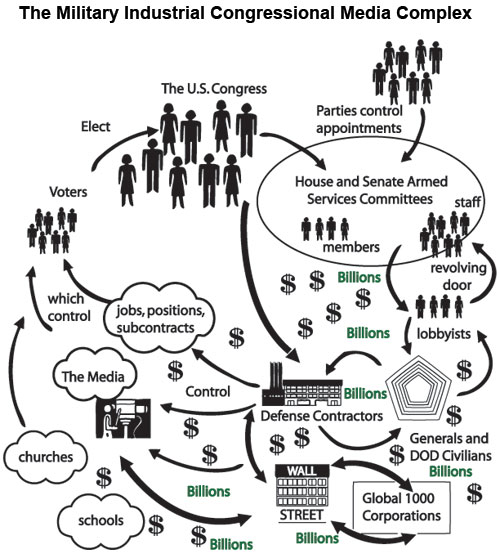 Unexpected circumstances have brought memories of my late younger brother, Rex, into my life again. He drowned a little over two years ago—and I was surprised to find how distressed I was (and remain).
Unexpected circumstances have brought memories of my late younger brother, Rex, into my life again. He drowned a little over two years ago—and I was surprised to find how distressed I was (and remain).
I say ‘surprised’ because we weren’t close. Indeed, for much of his life he was actively hostile.
He craved to be “the head of the family” and strongly resented the fact that I had been born first.
Not something I had planned!
Since there were twelve of us siblings in all, he could have had a veritable cricket team to captain if I hadn’t been in the way. Actually, he would have had to dispose of my sister, Maxine, as well, since he was third in line—but her existence did not seem to grate on him. She was a girl, after all. Those were very different days.
His jealousy could have led to serious trouble except that I was away at boarding-school for much of the time, and when I was home on vacation, we moved in almost entirely different circles. Also, I was four years older, so I was taller, and stronger, for much of our childhood.
Then came the day when he grew taller still and decided to challenge me. He wasn’t just taller—he was fit and extremely strong.
We had a long and truly epic fight which I might well have lost except that I was a student of unarmed combat—albeit mostly learned from books. That said, I was reluctant to use it because I was quite aware of the consequences. A couple of years earlier I had thrown someone, who had taken a swing at me, over my head—and then, as he rose rather groggily, I had hit him in the throat with my extended fingers. He went blue-ish and nearly died—and thereafter I tended to stay out of fights. They were one thing in books and movies; but, in real life, it was alarmingly easy for matters to get out of hand.
In this case, I had had little choice in the matter, and finally resorted to a blow—not in the Marquis of Queensbury boxing rules--which both ended that fight, and left Rex sufficiently wary not to try for a re-match. I was much relieved, because he kept on growing, and would probably have beaten me next time.
Also, we had smashed a valuable Hogarth print as we rammed each other against the corridor walls in the course of our fight, and I didn’t fancy encountering the wrath of my stepfather if we broke a second one. He, my much loved step-father, Alfred, had been furious. Not only had the print been an original, but so had the frame and glass. It was irreplaceable.
Rex could be surly, vindictive, and violent to the point of being dangerous—but he could also be utterly charming; and, by all accounts could be a very good friend—and when he was in form, could be excellent company. In fact, despite the bad blood between us, there were good times too.
After he died, I was berated by a good friend of his—Hilary Conde Mark (see photo) whom I had never met (sad to say)—for not writing a tribute to Rex.
I explained that it had been a year of death as far I was concerned—a series of people I was close to had died—and I just hadn’t felt up to it. She apologized with considerably grace, and talked about how she had met Rex and that she had become something of a confidant over the years—though she had never been a lover.
I found her warm of heart, generous of spirit and absolutely captivating (and, at that time I had no idea what she looked like).
Ye gods? A woman to die for? Much more, I suspect.
Truthful? Let’s not go there. How can one tell—especially from a distance. But, I would like to think so.
Given Rex’s success with women—he was good-looking, with a terrific smile and a keen sense of humor, that was something of a surprise—but he showed good judgment in recognizing that the best intimacy with an attractive woman is not always physical (not that I thought that back then—and not that I’m entirely sure of it now).
I then learned that the Hilary—whom I have still never met—was a fellow author, and, by all accounts, a very good one. ‘Exceptional’ may well be the correct word. Her Amazon reviews give her 5 out of 5 stars. The following is from one.
I was pleasantly surprised when I started reading the book. To have Talleyrand narrate the story of Napoleon and Bernadotte was a touch of genius. It combines three very different personalities who have to relate to each other for the good of their country. I love a good physiological biography and this one definitely is. Never boring, very fluid. I'm just sorry that she didn't include the escape from Elba and the battle of Waterloo. But, as my husbands says, it keeps you wanting for more. I just wonder if it is enough material for a second book. I enjoyed it immensely.
If you judge people by their friends, there was a great deal more to Rex than I appreciated when he was alive.
Now go and read Hilary’s books.
As for Rex, wherever you are, all I can say is: You chose your champion well.
But—wait for it—Hilary wasn’t Rex’s only champion. In January 2013, I received the following e-mail via LinkedIn from William Kevan McNeill:
Subject: Rex
Good Day Victor,
We haven't met but I think I have met most of your family through the years including your amazing mother several times, the first being in 1978/9. Before meeting her Rex told me if I laughed I would be fired!!!!! I met Rex when I was 13 or 14 on the Isle of Bute. As soon as I left school at 16 he gave me a full time job.
Rex saw an ability in me and gave me the tools to perfect it!!! for that I will always be grateful unfortunately as I got older we grew apart although I still done little jobs for him until he died we had some great fun together!! We also had several serious fights, It was a love hate relationship but we always made up in the end, I am glad that I had the time to share a dram and a laugh with him two weeks before he died, He was a big part of my life and I miss him terribly. It is a great shame he didn’t keep a diary as his life would be a good yarn. I have read some of your writings on your web about you and your mother in pubs after theatre. I will get your books eventually. In the meantime i hope you have good health and if i can I would like to keep in touch now and again.Best regards
Kevan McNeil..
If I write, and quote this way, I’m going to start saying I miss the SOB—and that would put both of us into deep shock. Being dead, I guess he would survive it better.
I find it hard to believe he is dead. On his worst day, he was such a vital force. I feel both disturbed and singularly saddened.










 In truth, Amazon Studios were launched in 2010, but I don’t think they were taken too seriously originally. They should have been—because, as always, they moved fast.
In truth, Amazon Studios were launched in 2010, but I don’t think they were taken too seriously originally. They should have been—because, as always, they moved fast. 

 Occasionally, I think deep thoughts about mighty issues (though some might call it daydreaming).
Occasionally, I think deep thoughts about mighty issues (though some might call it daydreaming). 



 In fact, a number of people have fought the MICC over the years, though were rarely entirely successful. That said, some enjoyed significant victories and escaped with the career equivalent of minor bruises.
In fact, a number of people have fought the MICC over the years, though were rarely entirely successful. That said, some enjoyed significant victories and escaped with the career equivalent of minor bruises. 



